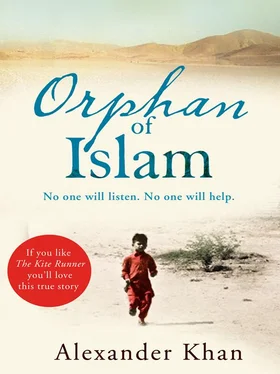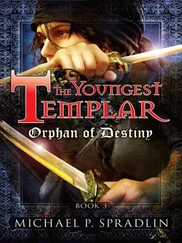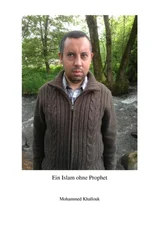There were times when Jasmine and I clearly hadn’t done anything wrong, but were locked in the bedroom anyway. One minute we would be playing with our cousins, the next Fatima would be whisking us upstairs as the whole house erupted in frenzied activity, children and adults running and shouting everywhere. As we were rushed up, I was sometimes certain I could hear the sound of the letterbox flapping at the front door, accompanied by a woman’s voice yelling through it. When this happened, the door was never, ever opened, and yet normally a constant stream of visitors walked over that threshold at all times of the day. What was so wrong with this particular visitor that they could not be admitted?
We ourselves weren’t allowed out of the house very much. A walk to Dilawar’s shop with Fatima or Ayesha was as far as we got. There were no trips to the park, the playground or the seaside. We didn’t go into the town. Our whole life was 97 Nile Street and a couple of streets around it. We didn’t even go to school. Now I wonder why no school inspectors were on Fatima’s tail, but maybe back then they didn’t care whether Asian kids attended or not. However, we were getting an education of sorts at a house at the back of Nile Street that had been knocked through into the house next door and converted into a mosque.
Sebastopol Street was the home of the local imam and his wife. The mosque itself was only for men and older boys, so, with Jasmine, Tamam and Maisa, plus a handful of other little kids from around Hawesmill, I went along several times a week to sit in a side-room and learn the basics of Arabic, making a start on the 114 chapters of the Qu’ran. The imam’s wife took the lessons, handing out simple little textbooks which taught the ‘ABC’ in Arabic, plus other key words and phrases. As we made our first clumsy attempts at this complicated language she listened to us in silence, constantly playing with a set of worry beads. She taught us sentences that form the cornerstones of the Holy Book, for example:
Bismill  hi r-ra
hi r-ra  m ni r-ra m
m ni r-ra m
Al  amdu lill hi rabbi l-’
amdu lill hi rabbi l-’  lam n.
lam n.
which translates as:
‘In the name of God, the most beneficent, the most merciful,
All appreciation, gratefulness and thankfulness are to Allah alone, lord of the worlds.’
From an early age all Muslims know these verses from the opening of the Qu’ran, and I was no exception. I’d heard them spoken while in Pakistan. But I found it very difficult to read basic Arabic and also to get the correct pronunciation. The imam’s wife would listen to my tongue twisting all over the place and, with an expression like vinegar, hit me with a short stick she kept under the seat. She didn’t do it very hard – it was more of a tap than anything else – but it was enough to make me anxious. It also had the opposite effect to that intended: instead of learning to read and speak the verses properly, I became more word-blind and tongue-tied. From that moment on, I struggled with the Qu’ran. It would cause me no end of problems as my childhood progressed.
After ten months at Fatima’s I’d become used to Dad coming and going. He would disappear for weeks on end and although I missed him at first, especially as Fatima obviously had it in for me, his absence wasn’t so noticeable day by day. What was becoming annoying was Tamam’s constant teasing about my ‘white Mum’. It was childish stuff but it hurt, especially when I was locked in the bedroom for retaliating. In there, the same old questions would go round in my mind. Where was she? Did she know we were here? When would she come for us?
The last question was the one I thought about most. As time went on and she didn’t appear, I wondered if she’d forgotten us or had found some other kids to be mum to. I must have asked Fatima loads of times about her (and, judging by Tamam’s teasing, it was obviously a topic for family discussion when we weren’t listening), but she constantly stonewalled me.
In the end, the knock on the door that saved us from a life of punishment and drudgery at Fatima’s came not from Mum but from Dad. He appeared one afternoon in late autumn, looking well-fed and satisfied with life. He stepped into 97 Nile Street with a big smile on his face and picked up me and Jasmine in one swoop.
‘I’m back, kids,’ he shouted, ‘and I won’t be going away again! I’ve got us a place to live just round the corner. We’re all going home at last.’
We squealed and shouted with happiness. I couldn’t believe Dad was back and we were leaving horrible Aunty Fatima’s.
We were full of questions, but Dad silenced us with a wave of the hand. ‘I know, I know, you want to ask everything,’ he said. ‘But first I want you to do something. There are some people outside I’d like you to meet. They’re in the car. Come on, I’ll show you.’
He took us by the hand and led us about 10 yards up the street to an old brown Datsun Sunny. A youngish shy-looking woman in a headscarf sat in the passenger seat, holding a baby. As we got up to the window she stared wide-eyed at us, then up at Dad. In the back of the car were three children who were jumping and scrabbling about like a family of monkeys. They seemed very keen to get out and yet they shrank back from the window as I leaned forward and looked in.
I turned to Dad. ‘Who are these people?’
‘This,’ he said slowly, ‘is your new mum. She’s come all the way from Pakistan to look after you. Isn’t that good?’
‘So why’s she brought these kids?’
‘They’re your brother and sisters. We’re going to live together. You’ve got some new kids to play with now, eh?’
Brother and sisters? I didn’t get it. Neither could I understand why we needed a new mum. I wanted to ask about the old one, but Dad seemed so happy to see us that I decided not to make him cross by mentioning her. Jasmine and I climbed onto the back seat of the Datsun, squeezing in next to the kids, who had suddenly become strangely silent.
‘This is Abida,’ Dad said, pointing at the woman in the front seat.
She smiled gently and said, ‘Hello there,’ in Pashto. I smiled back. She seemed nice – nicer than Fatima anyway.
‘And this is Rabida,’ Dad continued, gesturing to a girl of about 12. She ignored the introduction and looked out of the window at the row of terrace houses.
‘And these little ones are Baasima, Parvaiz and Nahid. Nahid’s the baby. Children, this is Mohammed and Jasmine. Say hello, everyone.’
The younger boy and girl, Parvaiz and Baasima, just stared at us. I shuffled around on the leatherette seat, not knowing what to do. The awkward moment was broken by Dad turning the key in the ignition and revving the engine as hard as he could before pulling away up the hill and out of Nile Street. I didn’t really care who these strangers were. We’d escaped from Fatima’s; for the moment, that was all that mattered.
The car turned into Hamilton Terrace, a street or two away from Fatima’s, and stopped outside a house in the middle of the row. From the outside, number 44 looked much the same as 97 Nile Street. The inside was depressingly familiar: two small rooms and a kitchen downstairs, two little bedrooms and a bathroom upstairs, plus a yard out the back. What was missing, thankfully, was Fatima’s sour face. I was very pleased about that and hardly noticed how shabby the house really was. From the beginning, despite Abida’s shyness, this felt like a happy home.
Читать дальше

 hi r-ra
hi r-ra  m ni r-ra m
m ni r-ra m










